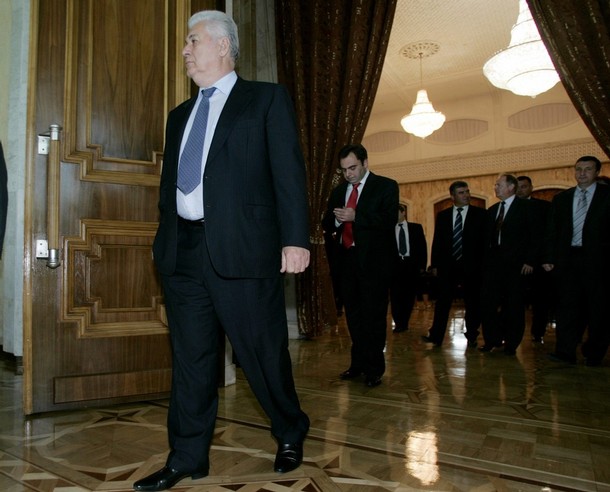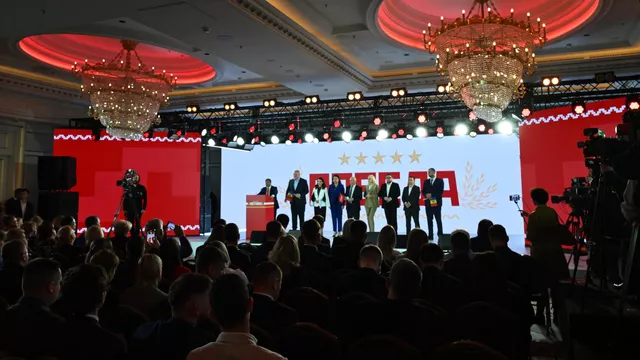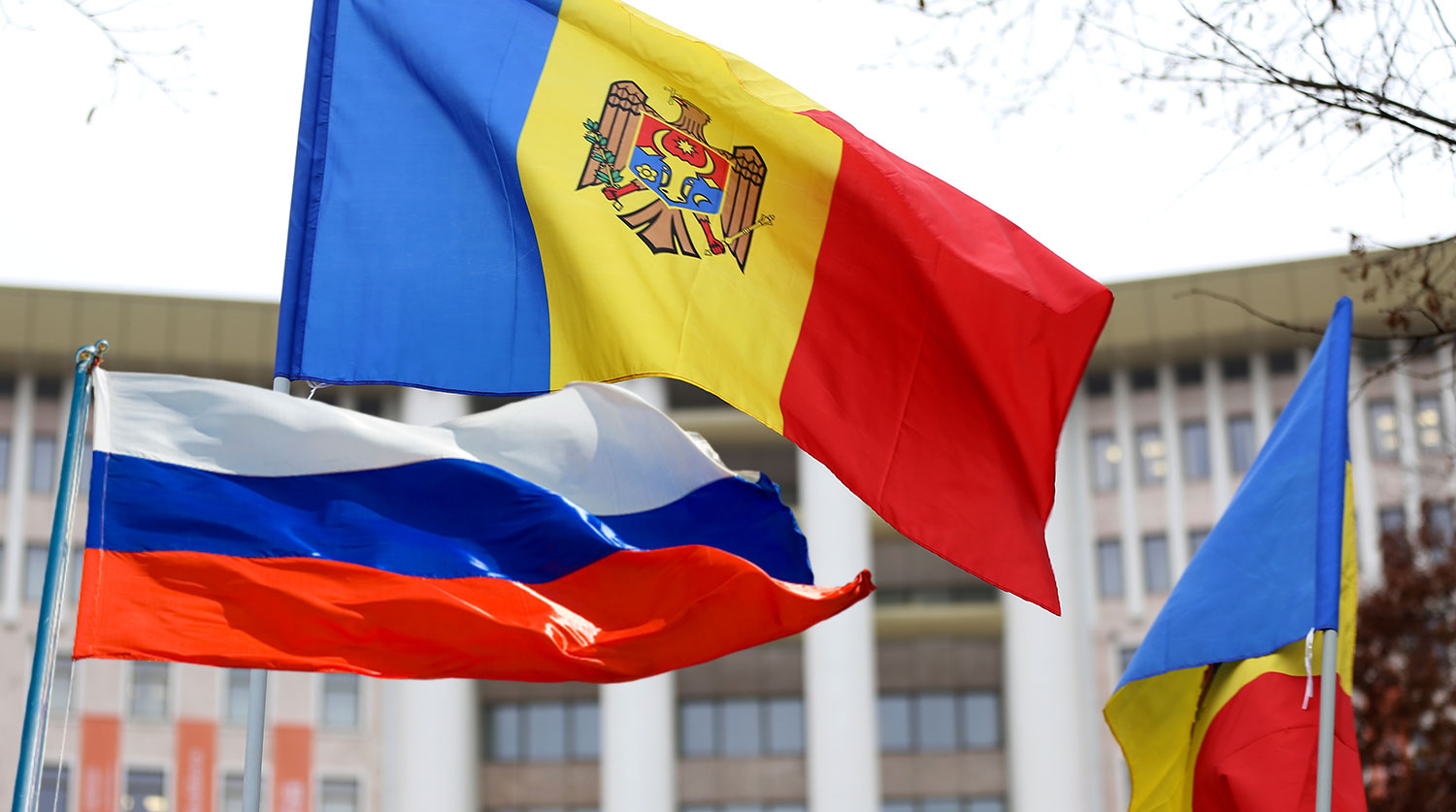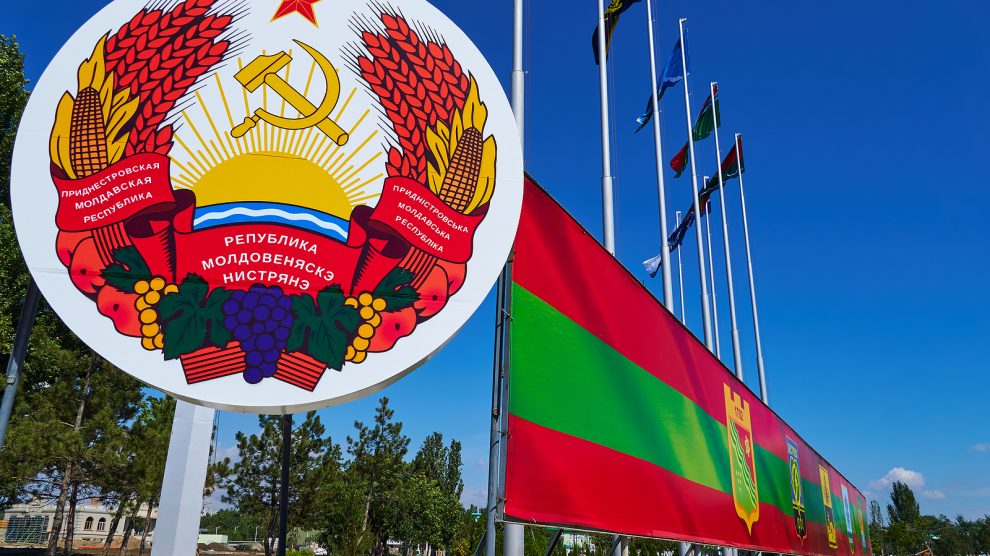
Moldova Embarks on Electoral Campaign in Tension-Filled Atmosphere
Moldova Embarks on Electoral Campaign in Tension-Filled Atmosphere
Exercising his interim powers under the constitution, Moldova’s outgoing president Vladimir Voronin has dissolved the parliament that was elected on April 5 and has called new parliamentary elections for July 29. Voronin’s decree, issued on June 15, had become unavoidable after the opposition twice boycotted the election of the new head of state in the newly elected parliament. Under the constitution, new parliamentary elections must be held if the deputies twice fail to elect the state president with at least 61 votes in the 101-seat chamber. The nominally liberal opposition used its blocking minority to force the nominally communist election winners to call new elections. Today (June 22) Voronin is meeting with Russia’s top leaders in Moscow in a frantic quest for their benevolent neutrality in the electoral campaign (Moldpres, June 21).
The nominal Communist Party held 60 seats, one short of the goal, in the newly-elected, now-dissolved parliament. It nominated the acting Prime Minister Zenaida Greceanai, who is politically unaffiliated (as is almost the entire cabinet), as presidential candidate in both rounds of voting. The three nominal liberal parties, with 41 seats between them, deliberately forced the holding of repeat parliamentary elections. Rather than nominating a common candidate or simply voting against Greceanai, the opposition leaders boycotted the vote for fear that at least a few of their deputies would vote for her in the secret balloting. Opposition leaders and their more militant associates openly feared that some of their deputies could be bribed to cast their secret ballots for Greceanai (by contrast, the communists did not fear that their deputies might be bribed into sabotaging the vote). More prosaically, opposition leaders also feared that some of their deputies would vote for Greceanai to avoid new elections and the risk of losing their hard-won parliamentary seats.
The date of the new elections is the earliest possible one under the constitution and relevant legislation. Even so, it means that Moldova will not have a fully functioning parliament and government and new president until late August at least; amounting to at least six months of uninterrupted political campaigning in a poisoned atmosphere, institutional vacuum, a deepening economic crisis, and a wait-and-see attitude by international organizations and the lending institutions.
The electoral campaign is now starting from scratch with new voter registration lists, fresh slates of candidates, and many political parties beyond the four that had entered the now-dissolved parliament. In one of its last acts, the now-dissolved, communist-dominated parliament modified the electoral law, reducing the representation threshold from 6 percent to 5 percent, so as to encourage smaller parties at the expense of the main opposition parties (Basapres, Moldpres, June 15 – 21).
The post-election period from April 5 to date has witnessed an unraveling of governance and of democratic practice in Moldova, on the side of the authorities and of the opposition, respectively and jointly. On April 7, a mob of diverse social composition including the opposition’s sympathizers had seized, ransacked, and set on fire the buildings of the parliament and presidency in Chisinau. Opposition leaders and editorialists, whose rhetoric had been partly responsible for inciting the violence (almost certainly without envisioning such consequences), have failed ever since to condemn the vandalism unambiguously. Instead, they tried hard for a while to accuse the government of having set the two buildings on fire. The authorities, initially paralyzed, finally overreacted through brutal and indiscriminate beatings of alleged perpetrators in police custody. Without a scintilla of evidence, Voronin and members of his team are continually accusing Romania of having instigated the trouble. Vastly overstating his case, Voronin has failed to enlist European Union support against Romanian President Traian Basescu’s national-irredentist rhetoric, which did provide moral aid and comfort to elements in the opposition.
The Moldovan opposition (in parallel with Georgia’s radical groups) has openly defied the OSCE’s and European Union’s election assessments and post-election attempts to mediate. The Western election observers had evaluated Moldova’s elections as correct on the whole, its outcome reflecting voters’ choice. During the intervening period, E.U. diplomats urged the opposition to recognize the outcome and work in the new parliament. Opposition leaders essentially brushed the E.U. aside. They did negotiate behind the scenes with the communist leaders for a possible deal, but both sides mismanaged the attempt. Voronin’s team relentlessly accused the opposition leaders of having plotted a coup, even as the negotiations were ongoing with the same individuals toward a political deal and coalition government (which would have proven dysfunctional in any case). For their part, the opposition leaders remain captive to their own rhetoric and that of their editorialists, which continually depicts any political deal-making as treason and a "Judas-like" act.
The pre-election campaign had already been marked by a deep polarization and hate-filled rhetoric to an extent previously inconceivable in Moldova. The post-election violence was even more unthinkable, in light of this country’s track record on correct elections and social tranquillity in general. The electoral campaign now getting underway may exacerbate the political strife beyond any reasonable limits. Both sides are persisting with strategies of acute polarization of society, intolerance of political opponents, and personal attacks that will make it even more difficult for political parties to cooperate in the next parliament, unless a centrist force emerges now.


